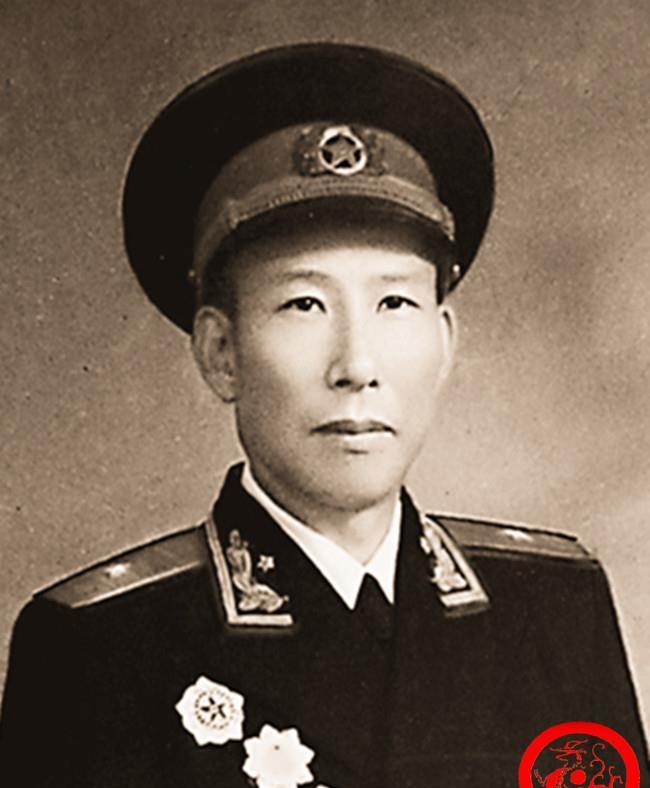
General Zeng Mei in his youth.
During the War of Resistance Against Japanese Aggression, the Japanese army ran rampant on the land of China, bringing deep suffering to the Chinese people. In order to drive the Japanese invaders out of China, countless sons and daughters of China fought with blood, and a large number of heroes and their feats emerged. One of them, in the face of the Japanese army that refused to surrender, chose to bury them all alive in order to reduce their losses, and this hero was General Zeng Mei.
General Zeng Mei (first from left) with his comrades-in-arms.
Zeng Mei, alias Zeng Zhaotai, was born in March 1914 to a poor peasant family in Xingguo County, Jiangxi Province. Because her family was poor, Zeng Mei was passed on to a family when she was a child. In 1929, the 15-year-old Zeng Mei chose to join the revolution under the influence of revolutionary ideology and ideological revolution. In April 1930, the Red Fourth Army came to Zeng Mei's hometown of Xingguo County, Jiangxi Province, to lead and launch a mass revolution, and during this period Zeng Mei signed up to join the army, when he was 16 years old. After two years of study, Zeng Mei finally became a qualified Communist Party member, and then entered the upper cadre team to study in the mapping class. In 1934, Zeng Mei was sent to the Operations Section of the General Headquarters of the Central Red Army as a staff officer. After the failure of the anti-encirclement and suppression campaign, the 20-year-old Zeng Mei accompanied the Red Army on a 25,000-mile long march. In 1937, Zeng Mei entered the Kang Da to study, and then served as an officer of a regiment of the Eighth Route Army, and participated in the "Hundred Regiments War".
In June 1941, Zeng Mei commanded troops to attack the Japanese army at night, and in one fell swoop, he destroyed a large stronghold of the Japanese Kou and won a great victory. However, just as our anti-Japanese soldiers and civilians were celebrating their victory, the scouts found a 30-man Japanese detachment preparing to sneak up on our troops. Before the Japanese could react, our guerrillas had surrounded them, and after a battle, more than a dozen Japanese casualties fled in a hurry, and stubbornly resisted in a cave. Although the Number of Japanese troops was small, they had two machine guns and a dozen guns, plus a favorable defensive position that was easy to defend and difficult to attack. If our army attacks strongly, it will inevitably pay a great price, but if it is so consumed, the reinforcements of the Japanese army will soon arrive. Looking at this situation, our army shouted at the Japanese army and negotiated to give up resistance and surrender on the spot, but in the end the Japanese army remained unmoved. Zeng Mei, as the commander, consulted with the county party cadres and decided that in order to reduce unnecessary losses, he could only choose to bury the 15 Japanese troops who refused to surrender alive on the spot. When the local people heard that they could hand blade the Japanese army, everyone happily took out their own tools to participate in the operation of burying the Japanese army alive, and everyone climbed to the top of the earth cliff and shoveled the loess above. During this period, a Japanese interpreter and two puppet soldiers ran out of the cave entrance and surrendered, and the remaining 15 Japanese soldiers still resisted. In view of this situation, General Zeng Mei ordered the burial to continue, and soon the Japanese army was all buried alive.
General Zeng Mei and his wife.
After the founding of New China, General Zeng Mei successively served as the director of the Operations Division of the Headquarters of the North China Military Region, the deputy chief of staff of the Headquarters of the Beijing-Tianjin Garrison Region, and the commander of the Beijing Garrison District. He was awarded the rank of major general in 1955. On January 31, 2015, General Zeng Mei died of illness at the age of 101.